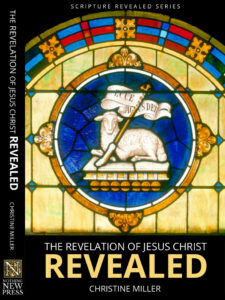Read Revelation 10 at Bible Gateway.
Revelation 10, the second interval period
I saw still another mighty angel coming down from heaven, clothed with a cloud. And a rainbow was on his head, his face was like the sun, and his feet like pillars of fire. He had a little book open in his hand. … Then the voice which I heard from heaven spoke to me again and said, “Go, take the little book which is open in the hand of the angel who stands on the sea and on the earth.” So I went to the angel and said to him, “Give me the little book.” And he said to me, “Take and eat it; and it will make your stomach bitter, but it will be as sweet as honey in your mouth.” Then I took the little book out of the angel’s hand and ate it, and it was as sweet as honey in my mouth. But when I had eaten it, my stomach became bitter. And he said to me, “You must prophesy again about many peoples, nations, tongues, and kings.” Rev 10:1-2, 8-11
The opening or giving of the little scroll, is the beginning of the events of the second interval period. This little scroll which is to prophesy again, is obviously something written which had prophesied previously, but which had been closed. Now the little scroll was open again (vs 2). This event, the opening or giving of the little scroll, was to happen before the sounding of the seventh trumpet (vs 7), but the seventh trumpet was not sounded yet. When the little scroll is consumed in this interval, its taste in the mouth is sweet as honey, but once digested, will make the stomach bitter (vs 10).
This little scroll is the Bible. It had been translated into common Latin (not the elegant Latin of the scholars) by Jerome in 405, at the request of Pope Damasas I. Up until that time, there was a Greek translation of the Scriptures in use among the church whose first language was Greek, and a Latin translation, which was in Old Latin, inconsistently translated from the Greek, in use among the Church whose first language was Latin, which was most people west of Greece.
The Vulgate, as Jerome’s version came to be known, put the Bible back into the tongue of the common people again. However, 405 was just at the time when the barbarian invasions were bringing about the Fall of Rome (476) and the beginning of the Dark Ages, when the light of civilization and learning was extinguished.
It wasn’t that Bibles were banned, at first, or even that education so that the Bible couldn’t be read was banned. It was that, for centuries following the Fall of Rome, a common person did not focus on education, or reading, but on farming, and survival. During the Dark and Middle Ages, it came to be that only two classes of people could afford an education; that was the nobility, and the clergy. Among the nobility education was often considered superfluous (especially the new German nobility of the former Western Roman empire); and among the clergy, the Bible came to be read less and less, for reasons we will next discuss.
Revelation 10, The little scroll, part two
Revelation 10, The little scroll, part three
Return to Revelation Index of Studies
Christine’s book The Revelation of Jesus Christ Revealed, based on these studies but greatly expanded, is now available from Nothing New Press. You may also be interested in reading the Book Extras and joining in on the Discussion.
As well, Revelation in Chiastic Structure is also available.

















Leave a Reply